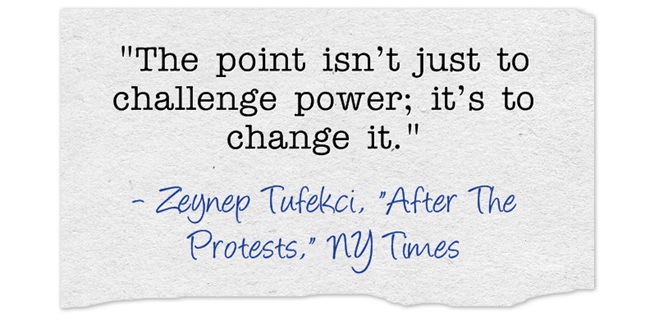Three years ago, Malcolm Gladwell’s article in The New Yorker, Small Change: Why the revolution will not be tweeted, created a fair amount of controversy. He poked some holes in what was, at the time, a celebration of the role of Twitter and other social media tools in Arab Spring.
Now, the New York Times has published an even better, and more succinct, column on the same topic which hits the nail on the head. It’s headlined After The Protests, and is written by Professor Zeynep Tufekci.
Here’s an excerpt:
And whether these take place in Turkey, Egypt or Ukraine, pundits often speculate that the days of a ruling party or government, or at least its unpopular policies, must be numbered. Yet often these huge mobilizations of citizens inexplicably wither away without the impact on policy you might expect from their scale.
This muted effect is not because social media isn’t good at what it does, but, in a way, because it’s very good at what it does. Digital tools make it much easier to build up movements quickly, and they greatly lower coordination costs. This seems like a good thing at first, but it often results in an unanticipated weakness: Before the Internet, the tedious work of organizing that was required to circumvent censorship or to organize a protest also helped build infrastructure for decision making and strategies for sustaining momentum. Now movements can rush past that step, often to their own detriment.
I’m adding this info to The Best Posts & Articles On Building Influence & Creating Change.




Recent Comments